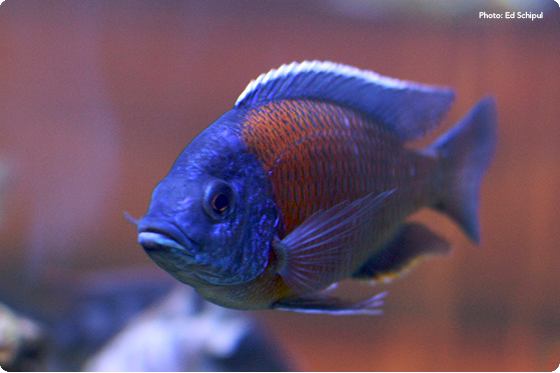
Do feeding and cleaning dives at the Houston Aquarium qualify as “scientific” for purposes of commercial diving regulations? This question was front and center in Houston Aquarium, Inc. v. OSHRC, one of several Fifth Circuit Court of Appeals cases argued at the University of Mississippi School of Law during the first week of March. Although most Fifth Circuit Court of Appeals cases are heard in New Orleans, where the court is based, it occasionally convenes at other cities and law schools throughout Louisiana, Mississippi, and Texas. The Fifth Circuit has visited Ole Miss every three years since 1984.
The controversy arose in January 2012, when the Occupational Safety and Health Administration (OSHA) conducted an inspection of the Aquarium after an employee complained the Aquarium did not qualify for the scientific diving exemption under which it was operating. The scientific diving exemption provides that the stricter commercial diving operations standard does not apply to “diving performed solely as a necessary part of a scientific, research, or educational activity by employees whose sole purpose for diving is to perform scientific research tasks.” 29 C.F.R. § 1910.402. The visit led to a citation for six violations of the commercial diving standard, four of which would later be upheld by an administrative law judge (ALJ), who assessed the Aquarium a $4,500 penalty.
The Aquarium petitioned the Occupational Safety and Health Review Commission (OSHRC) to review the four violations, which specifically concern whether dives performed to feed fish and clean the tanks at the Aquarium qualify for the scientific diving exemptions to OSHA’s Commercial Diving Operations standard. See Final Rule, 47 Fed. Reg. 53,357 (1982); 29 C.F.R. Part 1910 Subpart T. The Commission concluded that these dives fail to meet the exemption, finding no evidence that the Aquarium conducted scientific research during these dives, and that performing scientific research tasks was not the sole purpose of the feeding and cleaning dives. Pursuant to provisions of the Occupational Safety and Health Act of 1970, 29 U.S.C. § 660, the Aquarium subsequently sought review of the Commission’s decision in the Fifth Circuit Court of Appeals.
The Aquarium opened oral arguments by asserting that keeping the fish alive and the tanks clean is necessary for data collection and observation by scientists, visitors, and even virtual audiences. Prompted by the Bench, the Aquarium acknowledged that dives do not qualify for the scientific exemption if determined to be for both a scientific and commercial purpose, but rejected the suggestion that cleaning and feeding dives are mixed purpose dives. The Aquarium further noted that autopsy dives, which are dives performed to retrieve deceased specimen from the tanks for postmortem study, were determined to qualify for the scientific diving exemption; thus, in the Aquarium’s opinion, “it makes no sense” for these dives to be considered scientific, but not the dives necessary to keep the fish alive. Later pivoting off a question from the Bench, the Aquarium emphasized that scientific and technical expertise is needed to perform feeding and cleaning dives, such as when distinguishing helpful algae from harmful algae on the tank glass. Moreover, the Aquarium insisted that feeding and cleaning dives would still be performed if the Aquarium’s commercial operations were shuttered to the public. The Aquarium finished its argument by contending that electric pulses from the gear required by the heightened commercial standard may irritate the Aquarium’s sharks, potentially to the cleaning and feeding divers’ peril.
OSHA then began its defense of denying the scientific exemption for the Aquarium’s feeding and cleaning dives. The regulatory language in question exempts only those dives for which the sole purpose is scientific research, OSHA noted, before asserting that the phrase “sole purpose” should end the court’s inquiry in light of the Aquarium’s commercial operations. OSHA also highlighted that divers do not record any data from feeding and cleaning dives, an activity that is typical—if not essential—for scientific research. After discussion about whether these dives were nevertheless necessary to keep the fish alive for subsequent data-oriented research and, separately, if visitors’ observations contribute to the institution’s research activities, OSHA directed the Bench back to the phrase “sole purpose,” as well as to mixed purpose diving activities identified by the regulation’s preamble as ineligible for the exemption. At the Bench’s behest, OSHA’s arguments closed with a discussion of how other workplaces, such as oil rigs and aquaculture facilities, could exploit an Aquarium victory in these proceedings by performing token scientific observation or data collection in the course of otherwise commercial activities.
The Bench’s decision will have important implications for a variety of onshore and offshore activity, and it will likely be at least several weeks before that decision is finalized and published. The National Sea Grant Law Center will continue to monitor this case closely and share any noteworthy developments on our social media and blog.












